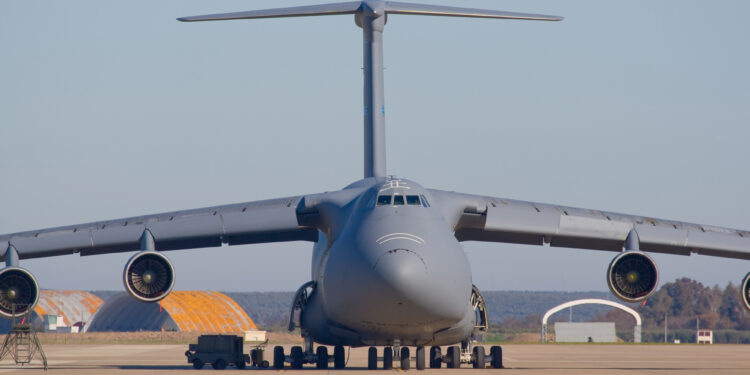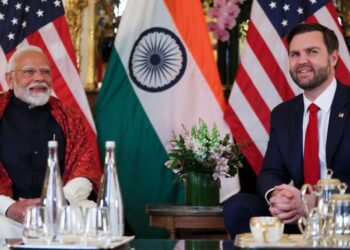In a significant immigration crackdown, a U.S. military aircraft carrying over 100 illegal Indian immigrants landed in Amritsar, India, on February 5, 2025. This unprecedented move by the U.S. government signals a firm stance on immigration enforcement while raising diplomatic concerns between India and the United States.
US Deportation Flight Lands in India with 100 Illegal Indian Immigrants
A total of 104 Indian nationals were deported from the United States via a military aircraft that landed at Sri Guru Ramdas Ji International Airport, Amritsar. The deportees, mostly from Punjab, Haryana, and Gujarat, had entered the U.S. illegally and were living without documentation.
Authorities in India processed their arrival, conducting identity verifications before allowing them to return to their respective hometowns.
First-Ever US Military Deportation to India
This marks the first time that the U.S. has used a military aircraft to deport Indian nationals, reflecting tightening immigration policies under the Trump administration. The move follows a broader effort by the U.S. to curb illegal migration and repatriate undocumented immigrants, particularly from countries with high migration rates.
Why Were Indian Nationals Deported?
The deported individuals were found to have:
- Entered the U.S. illegally through unauthorized channels.
- They overstayed their visas and failed to obtain legal residency.
- Attempted to seek asylum but did not qualify under U.S. laws.
The U.S. has been increasing deportation efforts amid concerns over border security and illegal immigration. Recently, Washington has also sought closer cooperation with India to manage migration issues efficiently.
India’s Response to the Mass Deportation
Indian Authorities Express Concerns
The Indian government has responded with mixed reactions. Punjab’s Minister for Non-Resident Indian Affairs, Kuldeep Singh Dhaliwal, voiced his concern, stating that many of these deportees had contributed to the American economy and deserved a fair opportunity to seek legal residency.
However, India has agreed to accept all its nationals residing abroad illegally, provided their identity is verified.
Bilateral Talks Between India and the US
The deportation occurred just days before a high-level meeting between Indian Prime Minister Narendra Modi and U.S. President Donald Trump in Washington, where migration and visa policies are expected to be key discussion points.
Foreign Ministry spokesperson Randhir Jaiswal reassured the public that India is working with the U.S. to:
- Prevent illegal migration from India.
- Strengthen legal migration pathways to the U.S.
- Safeguard the interests of Indians living abroad.
The US Immigration Crackdown: A Broader Perspective
Increasing Use of Military for Immigration Enforcement
The U.S. has stepped up deportations, utilizing military aircraft for repatriation flights. The Pentagon has confirmed that similar deportation efforts will continue, with over 5,000 undocumented immigrants in the U.S. already in deportation proceedings.
Recently, reports revealed that the U.S. spent approximately $4,675 per migrant on deportation flights to Guatemala and other countries, highlighting the significant financial burden of these operations.
Impact on Indian Migrants in the US
For Indians seeking to migrate to the U.S., the crackdown on illegal immigration presents a challenging future. The current U.S. policies emphasize:
- Stricter visa processing for temporary and permanent residency applications.
- Heightened border security to prevent illegal crossings.
- More deportation flights targeting undocumented immigrants.
Public Reactions in India
Families of Deportees Face Uncertainty
The sudden return of over 100 deportees has left families in distress, with many expressing concern over their reintegration into Indian society. Some individuals had spent years in the U.S., working under false documentation or seeking asylum.
Political Divide Over Deportations
Indian politicians are divided over the deportation:
- Supporters of the move argue that illegal migration should be discouraged.
- Critics highlight that many deported individuals contributed economically to the U.S. and should have been granted a chance to legalize their status.
What Happens Next?
The US-India dialogue on immigration is set to continue in the coming months. While the U.S. tightens migration policies, India seeks to negotiate better visa agreements for skilled Indian professionals and students.
For individuals planning to migrate to the U.S., legal experts now strongly recommend applying for visas through official channels to avoid deportation risks.











